Find Help
More Items From Ergsy search
-
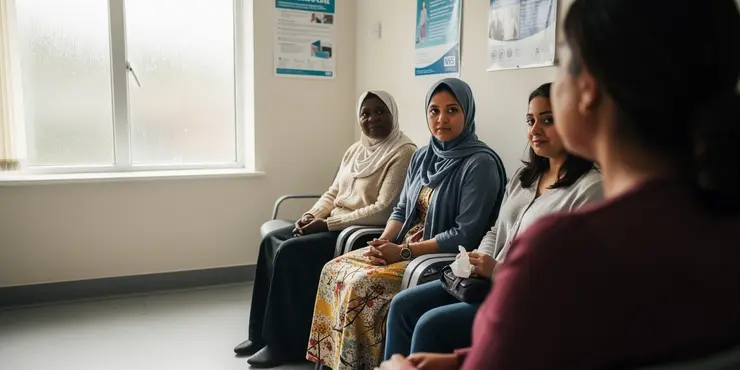
Women talking about their personal experiences of female genital mutilation (FGM) | NHS
Relevance: 100%
-
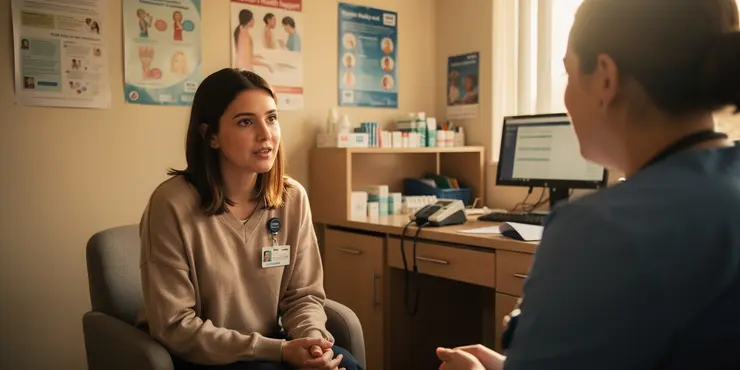
Female Genital Mutilation: The Facts | NHS
Relevance: 84%
-
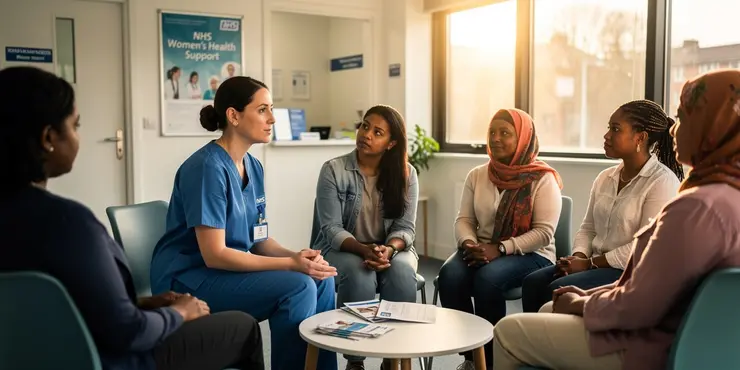
Female genital mutilation (FGM) | NHS
Relevance: 83%
-

Female infertility explained
Relevance: 33%
-
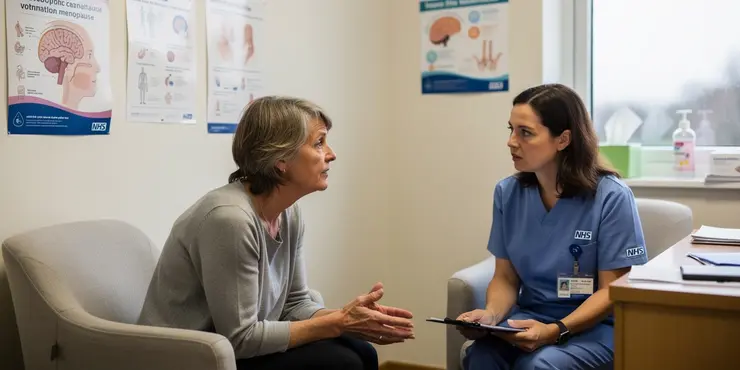
Do all women experience cognitive decline after menopause?
Relevance: 31%
-
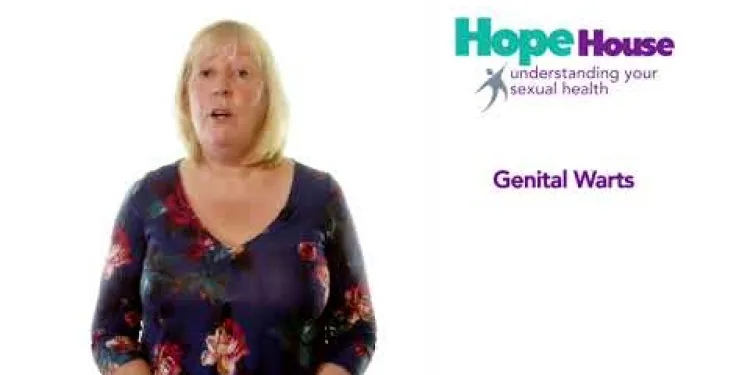
Understanding Your Sexual Health - Genital Warts
Relevance: 30%
-
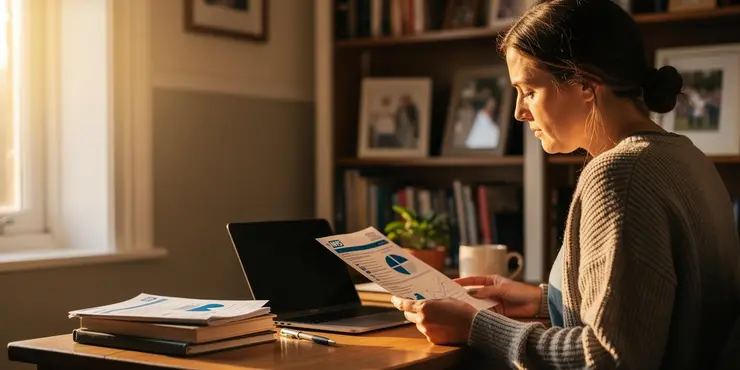
What are the reasons for female infertility?
Relevance: 29%
-
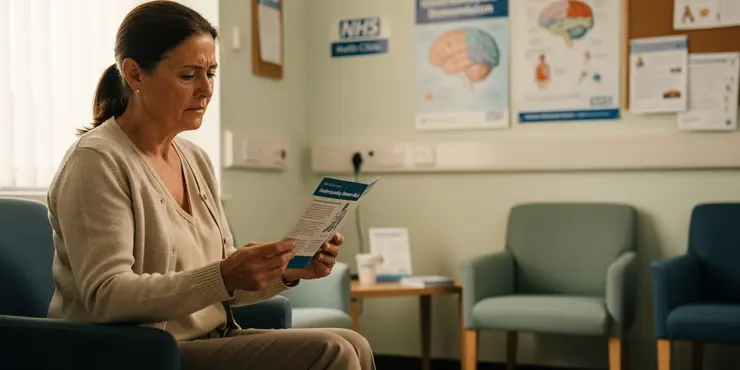
Do male and female brains age differently regarding dementia risk?
Relevance: 29%
-
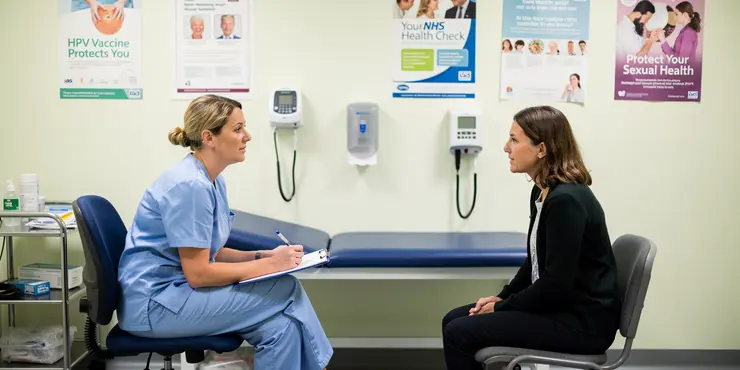
Can HPV affect both men and women?
Relevance: 27%
-
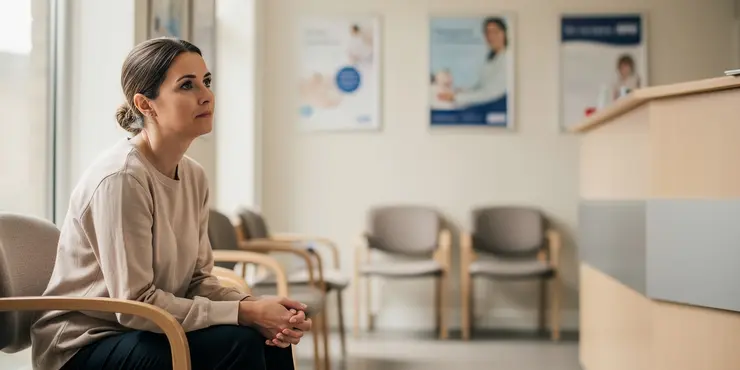
Cervical screening for women who have experienced sexual assault | NHS
Relevance: 26%
-
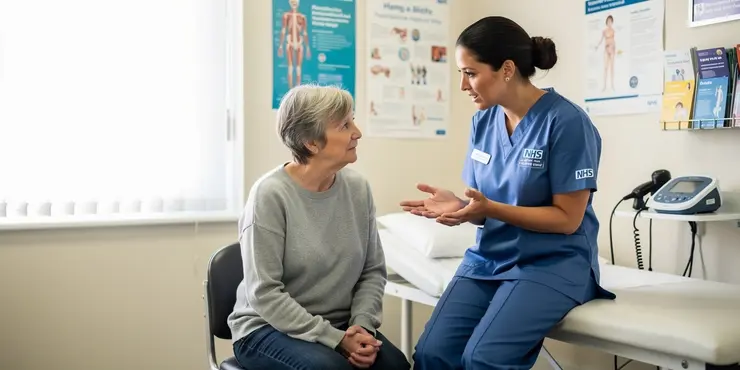
Can gonorrhoea infect areas other than the genital organs?
Relevance: 26%
-
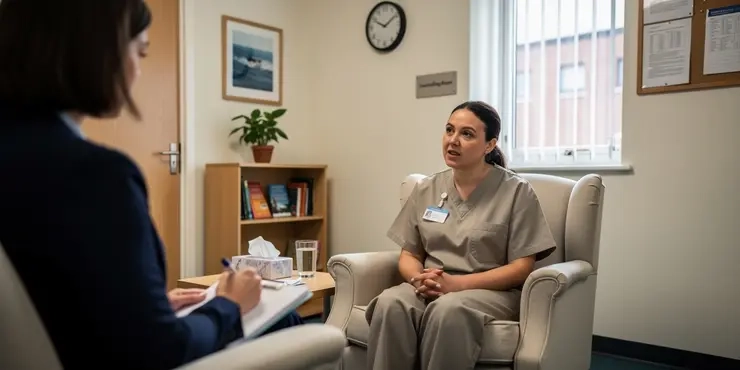
What are women's prisons like in the UK?
Relevance: 25%
-
Why do some women use menopause masking?
Relevance: 22%
-
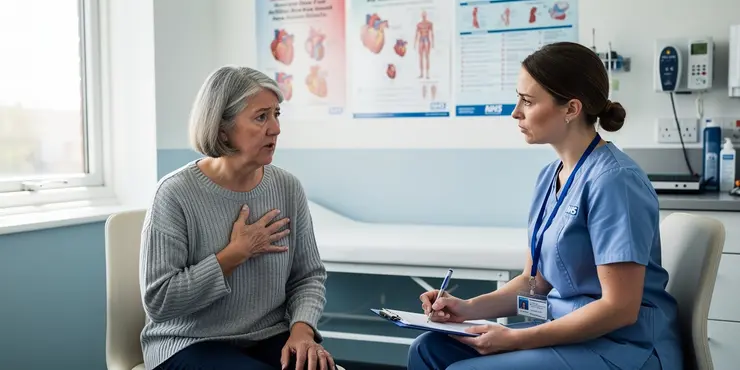
Can women have different heart attack symptoms than men?
Relevance: 21%
-
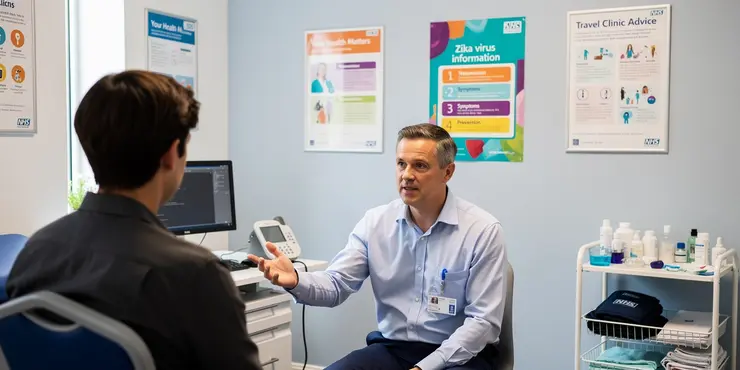
Can Zika virus be spread from person to person in the UK?
Relevance: 21%
-
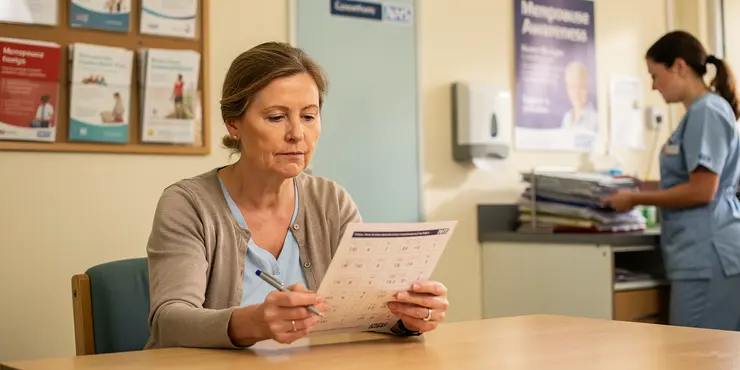
Should women take cognitive tests during menopause?
Relevance: 20%
-
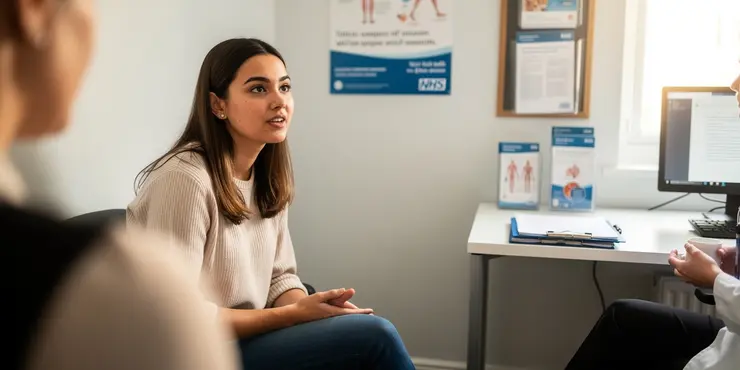
What is Honour Based Abuse?
Relevance: 20%
-
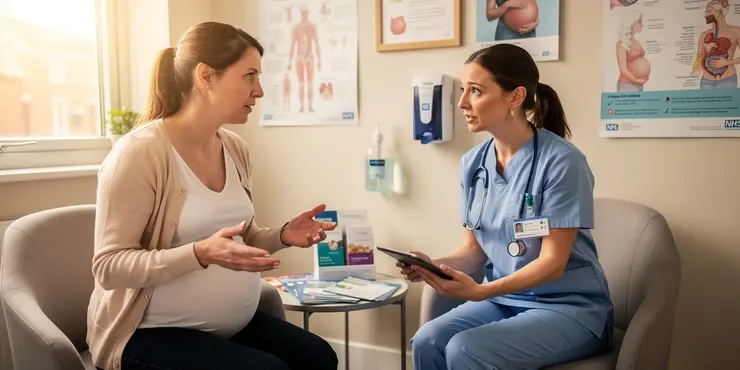
Can pregnant women take Baxdrostat?
Relevance: 19%
-
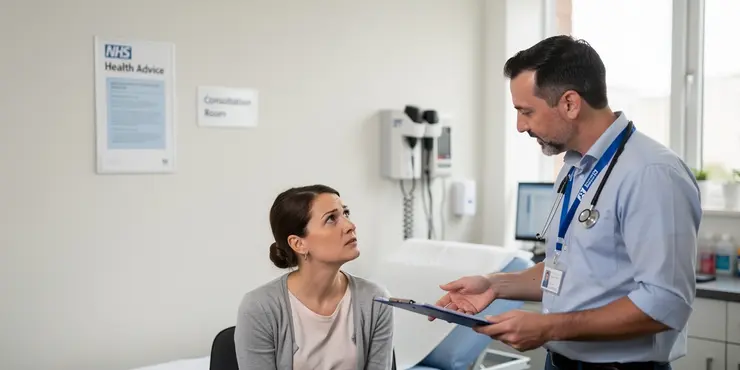
Can women use Abiraterone for treatment?
Relevance: 19%
-
Can pregnant women get chickenpox?
Relevance: 19%
-
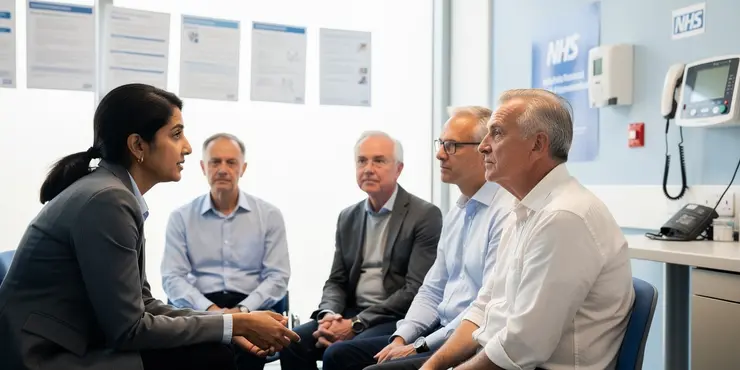
Are men and women's pension ages equalized?
Relevance: 19%
-
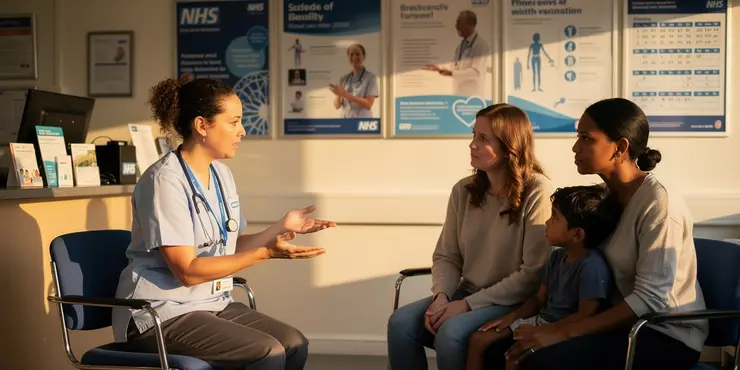
How long is a person with measles contagious?
Relevance: 18%
-
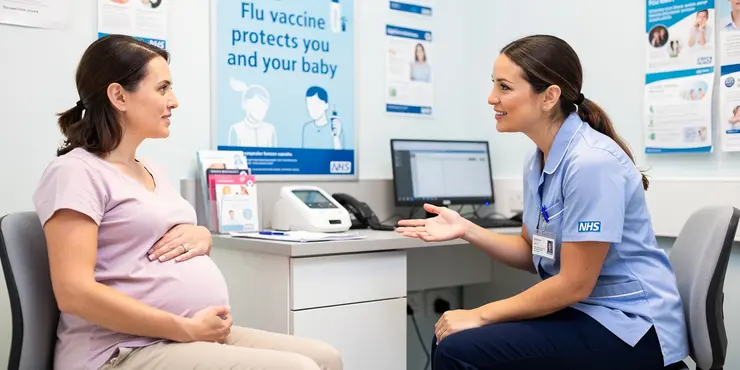
Can pregnant women get the flu vaccine?
Relevance: 18%
-
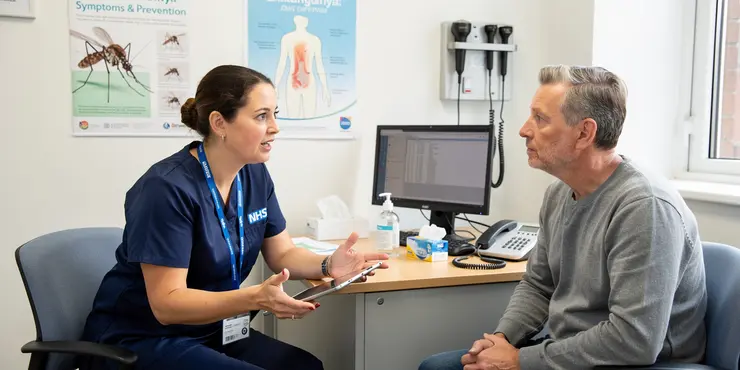
Can Chikungunya be transmitted from person to person?
Relevance: 18%
-
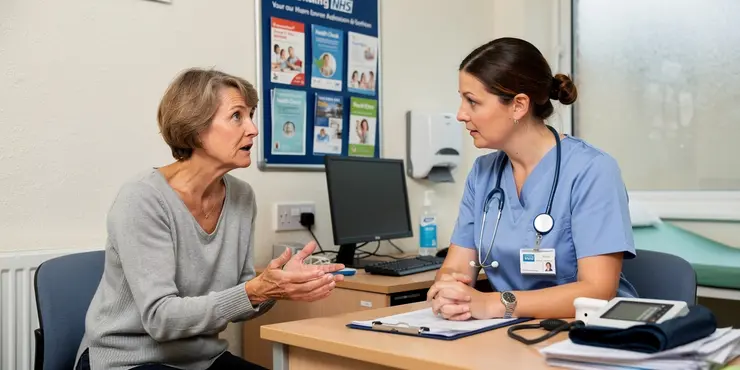
How common is it for women to develop dementia after menopause?
Relevance: 18%
-
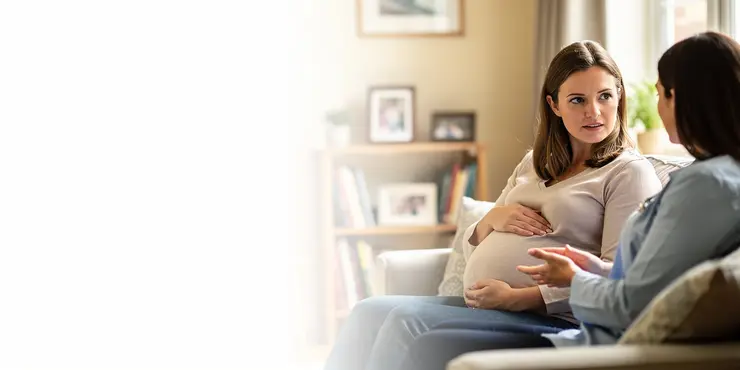
Can Paracetamol be used in pregnant women?
Relevance: 18%
-
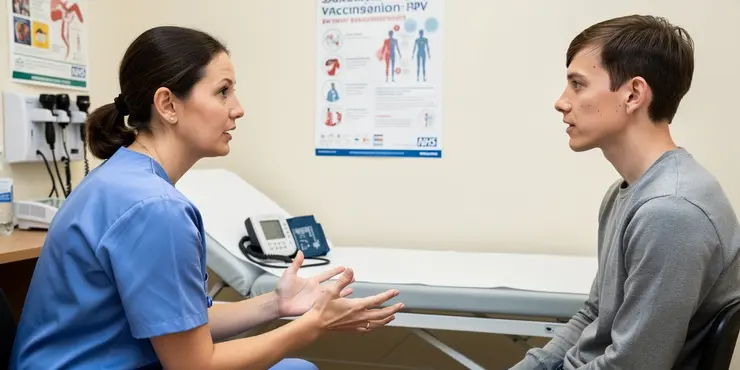
Can using condoms fully protect against HPV?
Relevance: 17%
-
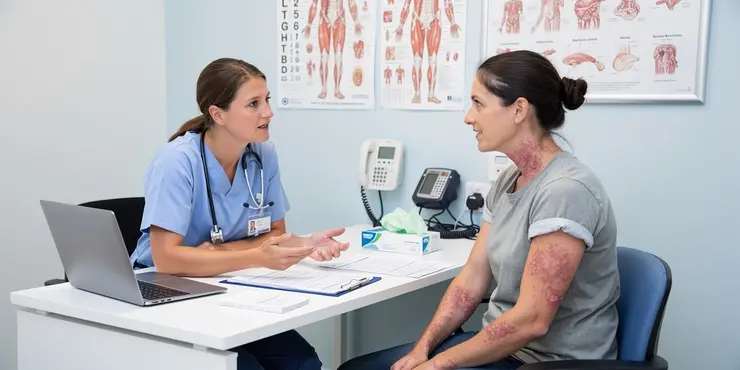
Can nettle rash spread from person to person?
Relevance: 17%
-
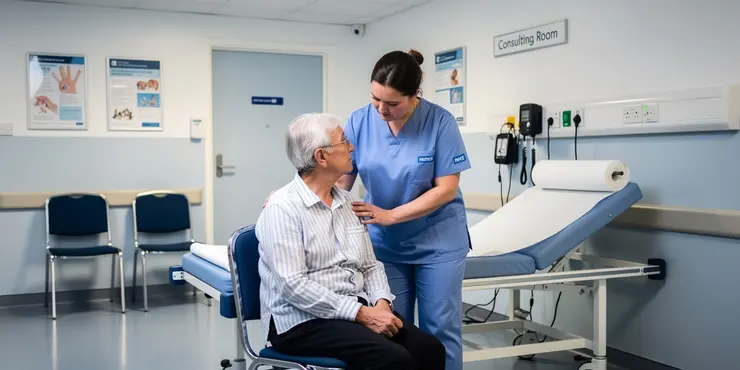
Can Nipah Virus be transmitted from person to person?
Relevance: 17%
-
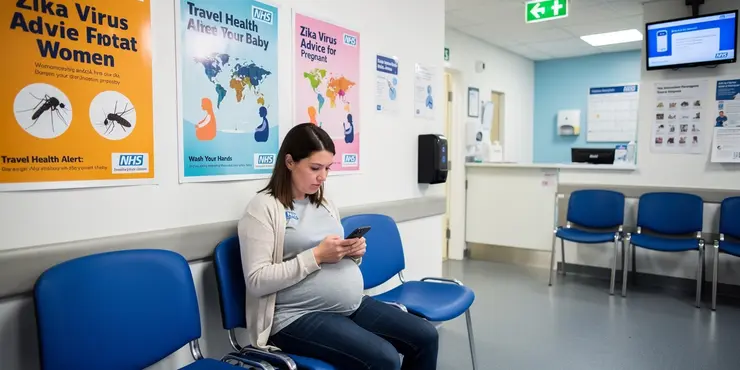
What precautions should pregnant women in the UK take regarding Zika virus?
Relevance: 16%
-
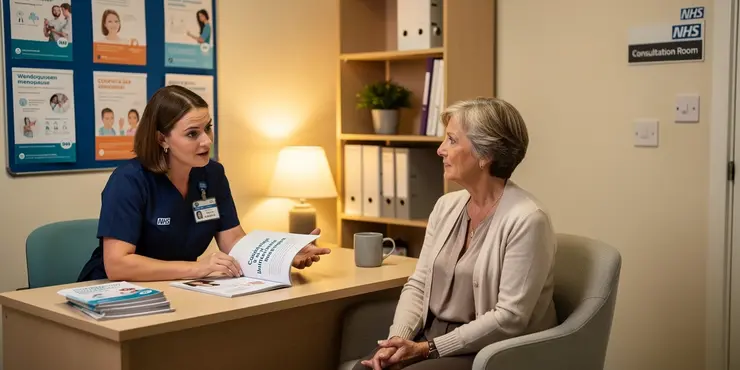
How can healthcare providers support women in managing menopause-related cognitive changes?
Relevance: 16%
-
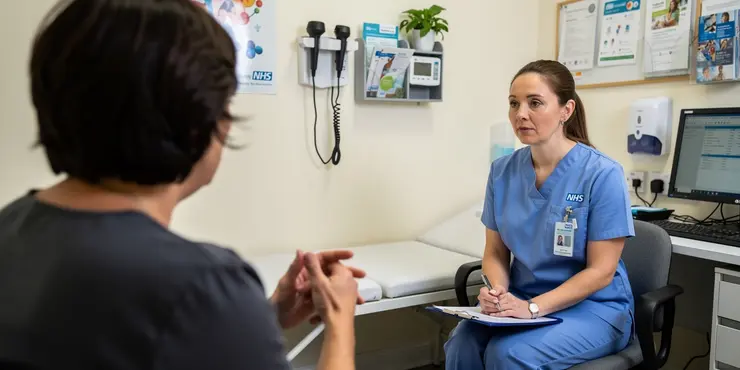
Is honour based abuse a cultural practice?
Relevance: 16%
-
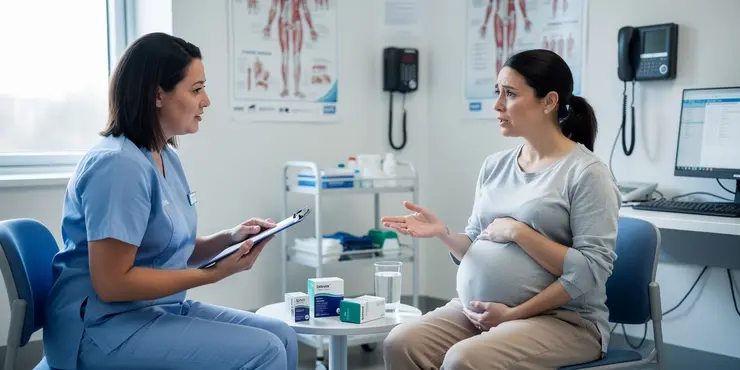
Can pregnant women take Ozempic?
Relevance: 16%
-
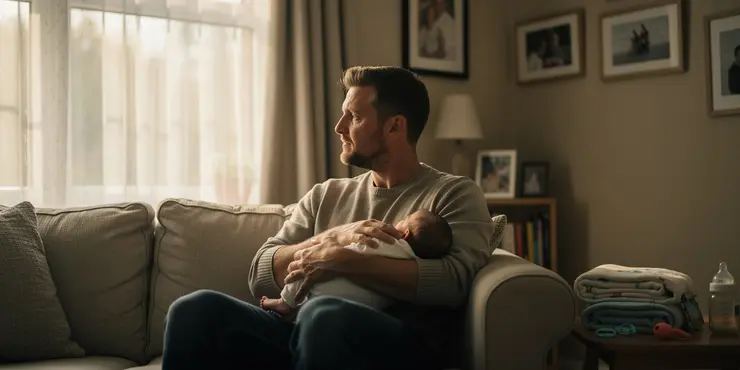
Can fathers experience postnatal depression?
Relevance: 16%
-
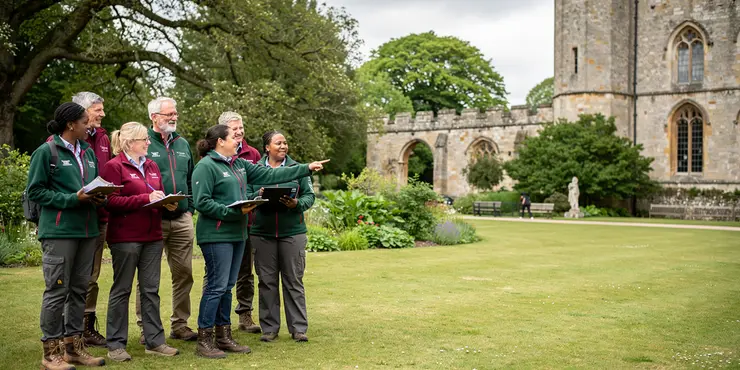
Is prior experience required to work at the National Trust?
Relevance: 16%
-
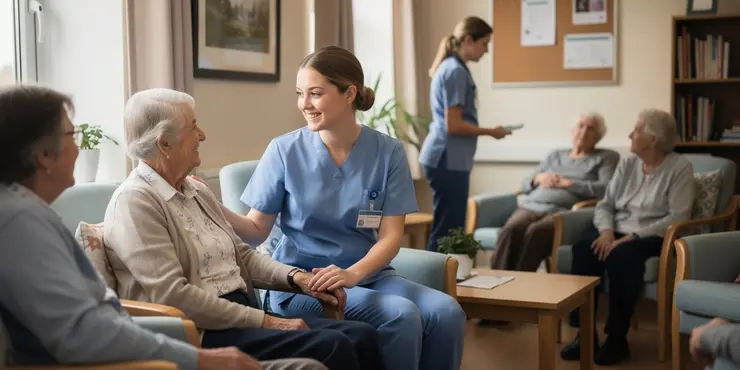
How important is work experience for entering a nursing program?
Relevance: 16%
-
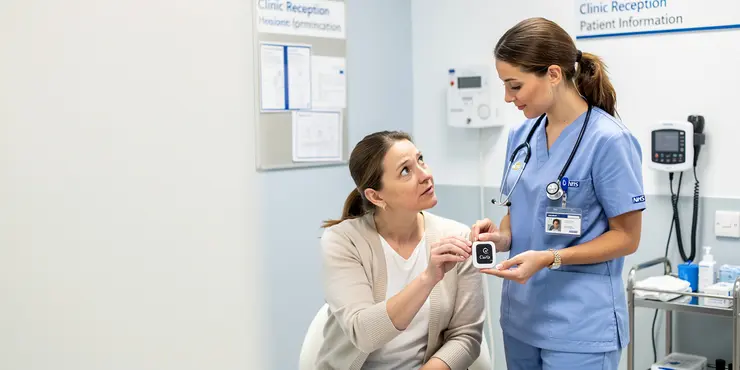
Bluetooth Tracker with Personal Alarm
Relevance: 16%
-
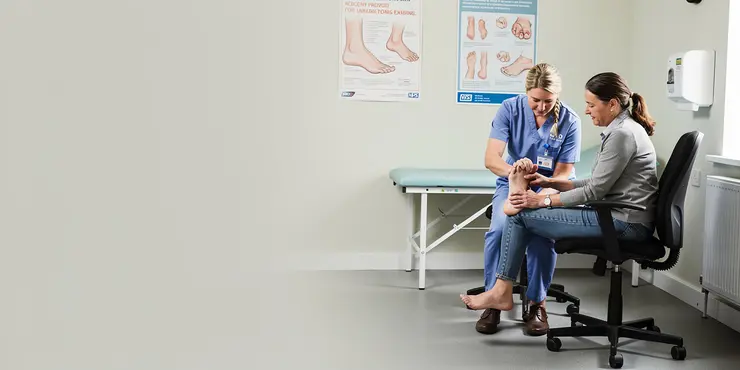
Podiatrist Personal Footcare
Relevance: 16%
-
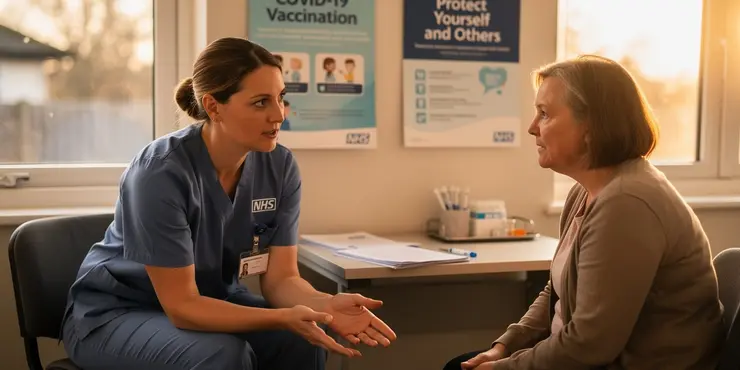
Will I experience side effects from the COVID jab?
Relevance: 15%
-
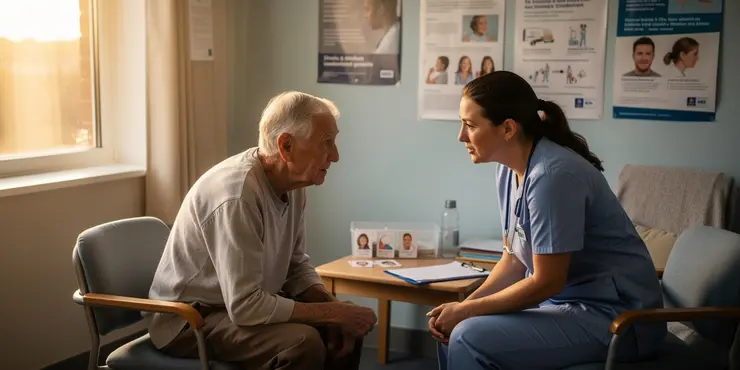
Stroke - Speech and Language Therapist's Experience
Relevance: 15%
Women Talking About Their Personal Experiences of Female Genital Mutilation (FGM) | NHS
Female Genital Mutilation (FGM) is a deeply traumatic experience that affects many women and girls worldwide. In the UK, survivors bravely share their stories to raise awareness and provide support to others. These individual accounts are pivotal in understanding the physical, emotional, and psychological impacts of FGM.
The Physical and Emotional Scars
Many women recount the significant physical pain and long-term health issues they face after undergoing FGM. Complications can include chronic pain, infections, and childbirth difficulties. Emotional scars are equally profound, with many survivors experiencing anxiety, depression, and post-traumatic stress disorder (PTSD). These accounts underline the serious medical and psychological interventions needed to support survivors.
The Fight for Awareness and Support
Survivors are at the forefront of advocacy, educating communities and health professionals about the consequences of FGM. By sharing their experiences, they aim to dismantle the cultural misunderstandings that perpetuate this practice. The NHS, along with various support organisations, provides resources and counselling for those affected, ensuring they receive the necessary care and protection.
Seeking Justice and Legal Protection
UK laws against FGM are stringent, aiming to protect girls at risk and prosecute perpetrators. Women's stories are vital in driving these legal frameworks, ensuring stronger enforcement and safeguarding measures. Their bravery in coming forward often aids in preventing future cases and securing justice for victims.
Building a Supportive Community
Creating a supportive network is crucial for the healing process. Survivors emphasize the importance of communities where they can share experiences, find solace, and receive encouragement. Numerous support groups and charities in the UK work tirelessly to provide these safe spaces, fostering resilience and empowerment among survivors.
The Role of the NHS
The NHS plays a critical role in addressing FGM through specialized clinics, helplines, and educational programs. They collaborate with survivors to enhance medical understanding and develop more effective support services. The NHS aims to offer comprehensive care, from immediate medical treatment to ongoing psychological support, ensuring a holistic approach to FGM's aftermath.
Conclusion
The personal experiences shared by women who have undergone FGM are invaluable in the fight against this practice. Their voices highlight the need for increased awareness, better support systems, and stringent legal protections. The collective efforts of survivors, advocates, and healthcare professionals are gradually paving the way for a future where FGM is a historical injustice, not a present reality.
Women Talking About Their Personal Experiences of Female Genital Mutilation (FGM) | NHS
Female Genital Mutilation (FGM) is when a girl's private parts are cut. This can be very painful and upsetting. Some women in the UK talk about what happened to them. They do this to help others know more and feel supported. Listening to these stories can help us learn how FGM affects our bodies and feelings.
The Physical and Emotional Scars
After FGM, many girls and women feel a lot of pain. Some have health problems for a long time. This can make things like having a baby harder. FGM also hurts feelings. It can make women feel very scared or sad. Some even get a condition called PTSD which makes them feel afraid of the past.
The Fight for Awareness and Support
Brave women talk about FGM to teach others about it. They want people to understand how bad it is. The NHS and other groups work to help people who had FGM. They give help like talking to someone who cares and understands.
Seeking Justice and Legal Protection
The UK has strict laws to stop FGM. These laws try to keep girls safe. Women's stories help make these laws stronger. When women talk about their experiences, it helps stop FGM from happening to others. It also helps to catch the people who do it.
Building a Supportive Community
Having friends to talk to is very important for women who faced FGM. Support groups and charities help by creating safe places where women can feel better. Here, they can share their stories and feel strong together.
The Role of the NHS
The NHS helps women who had FGM. They have special clinics and people to talk to. The NHS listens to survivors to understand better how to help. They provide care for both the body and mind, like medicine and talking therapy. This helps women heal more completely.
Conclusion
The stories of women who went through FGM teach us why it's important to stop it. We need to know more, help more, and have strong laws. Thanks to the hard work of everyone involved, FGM can become something that only happened in the past, not now.
Frequently Asked Questions
What is female genital mutilation (FGM)?
FGM involves the partial or total removal of the external female genitalia for non-medical reasons. It is a harmful practice and is illegal in the UK.
Why is FGM performed?
FGM is often carried out for cultural, religious, or social reasons within families and communities. However, it has no health benefits and can cause significant harm.
What are the health risks associated with FGM?
FGM can cause severe pain, excessive bleeding, infection, and long-term issues such as complications in childbirth, sexual dysfunction, and psychological trauma.
Is FGM illegal in the UK?
Yes, FGM is illegal in the UK under the Female Genital Mutilation Act 2003. It is also illegal to take a girl abroad for FGM or to help someone carry out FGM.
Can someone be prosecuted for performing FGM?
Yes, anyone found to be performing, aiding, or procuring FGM can face severe legal consequences, including imprisonment.
What should I do if I know someone at risk of FGM?
If you know someone at risk of FGM, it is important to inform authorities such as the police, social services, or health professionals immediately to ensure their protection.
How does the NHS support FGM survivors?
The NHS provides a range of services, including specialist clinics, medical treatment, and psychological support, to help FGM survivors.
Are there any support groups for FGM survivors?
Yes, there are various support groups and organizations dedicated to supporting FGM survivors, offering counseling, legal advice, and community support.
What are the signs that someone may have undergone FGM?
Signs may include difficulties with urination, menstrual problems, recurrent infections, pain during intercourse, and psychological distress.
Can FGM affect mental health?
Yes, women who have undergone FGM often experience significant psychological effects, including depression, anxiety, and post-traumatic stress disorder (PTSD).
Is anesthesia used during FGM procedures?
In many cases, FGM is performed without any form of anesthesia, leading to extreme pain and trauma for the girl or woman.
What are the different types of FGM?
There are four main types of FGM, ranging from partial or total removal of the clitoris and labia to other harmful procedures to the female genitalia.
Can FGM survivors have a normal menstrual cycle?
FGM can cause menstrual problems, including painful periods and difficulty in the flow of menstrual blood, which can lead to further health complications.
Are healthcare professionals in the UK trained to manage FGM cases?
Yes, healthcare professionals in the UK receive training to identify, manage, and support FGM survivors appropriately.
Can women who have undergone FGM have children?
While it is possible for women who have undergone FGM to have children, they may face complications during pregnancy and childbirth, such as obstructed labor and the need for cesarean sections.
What is female genital mutilation (FGM)?
FGM means cutting or changing parts of a girl's private areas.
This can hurt their bodies and their feelings.
It is not safe and is not allowed in many places.
If you need help understanding or talking about this, you can ask a trusted adult or use a picture book.
FGM means cutting or removing some or all of the outside parts of a girl's private area. There is no medical reason for this. FGM is harmful and against the law in the UK.
Why is FGM done?
FGM stands for Female Genital Mutilation. It is when parts of a girl's private parts are cut or changed. People do it for different reasons, but it can hurt girls and is not safe.
Some people do FGM because:
- They think it is a tradition or it is part of their culture.
- They believe it will make a girl clean or more accepted by her community.
- They think it will make a girl more likely to get married.
FGM can cause serious health problems and it is important to protect girls from it.
If you want to learn more or need help, you can talk to a trusted adult or use helplines and support groups for advice.
Sometimes families and communities do FGM for their culture, religion, or social reasons. But FGM does not help anyone's health. In fact, it can hurt people a lot.
What health problems can FGM cause?
FGM can cause many health problems. It can lead to pain, infections, and problems when urinating. Some girls and women may have trouble when they have babies. It can also make them very sad or scared. There are ways to get support, like talking to a doctor or counselor if you need help.
FGM can cause a lot of pain. It can make you bleed too much. It can also lead to infections. Later on, there can be problems when having a baby. It can make sex difficult and can hurt feelings and emotions.
Is FGM against the law in the UK?
Yes, FGM is against the law in the UK. FGM stands for Female Genital Mutilation. This law is from 2003. It is also against the law to take a girl to another country for FGM or to help someone do FGM.
If you want to learn more or need help, you can talk to a teacher, a trusted adult, or call a helpline. You can also look for websites or videos that explain things in a simple way.
Can someone get into trouble for doing FGM?
Yes, if someone hurts a girl by doing FGM, they can get into big trouble with the law and might even have to go to jail.
FGM means hurting a girl’s private parts. It's against the law.
If you need help understanding or remembering this, you can ask a grown-up or use picture cards to help explain what it means.
What to Do if You Know Someone in Danger of FGM
FGM stands for Female Genital Mutilation. It is a harmful practice. If you think someone might be in danger of FGM, you can help them.
- Talk to a trusted adult, like a teacher or family member.
- Tell someone who can help, like the police or a social worker.
- You can call a helpline for advice and support.
If you are not sure what to do, it’s okay to ask for help. People are there to help keep everyone safe.
If you know someone who might have FGM, tell the police, social workers, or doctors right away. This helps keep them safe.
How does the NHS help people who have had FGM?
FGM stands for Female Genital Mutilation. It is when some parts of a girl’s or woman's private parts are cut or changed, and it should not happen.
If someone has had FGM, the NHS can help them. The NHS stands for National Health Service, and they help people feel better.
Here is how the NHS can help:
- Doctors and Nurses: They can talk to you about FGM. They can answer your questions and help you get healthy.
- Therapists: They help you if you feel sad or scared because of FGM. Talking can make you feel better.
- Special Clinics: These are places where doctors understand FGM. They know how to help you feel better.
If you or someone you know has had FGM, tell a doctor or nurse. They will know what to do and will keep you safe. It is important to talk to someone you trust.
The NHS helps people in many ways. They have special clinics and doctors to give medical care. They also give support to help people feel better if they've experienced FGM.
Is there help for people who have gone through FGM?
Yes, there are groups that can help. They are called support groups.
You can talk to other people who understand. This can make you feel better.
If you need help, ask a doctor, nurse, or teacher. They can help you find a support group.
You can also try using helpful tools like talking to someone you trust or reading about others' stories to feel less alone.
Yes, there are different groups that help people who have been through FGM. They can give advice, help with the law, and support in the community.
What are the signs that someone may have had FGM?
FGM stands for Female Genital Mutilation. It is a serious procedure done to girls or young women. Here are some signs someone might show if they have had FGM:
- They might have pain in their private parts.
- They could have trouble going to the toilet.
- There might be a lot of bleeding.
- They could get infections easily.
- They might not want to go to the doctor or nurse.
If you think someone has had FGM, you can:
- Talk to a trusted adult.
- Call a helpline for advice.
- Tell a teacher or school nurse.
Remember, it is important to be supportive and kind to anyone who might have had FGM.
Signs might be:
- Having trouble peeing
- Problems with periods
- Getting infections a lot
- Feeling pain when having sex
- Feeling very upset or sad
If you feel any of these things, it can help to talk to someone you trust, like a doctor or counselor. They can give you advice and help you feel better.
Can FGM affect how we feel?
FGM stands for Female Genital Mutilation. It is when some parts of a girl's private parts are cut. This can hurt a girl’s body.
FGM can also make girls feel very sad, scared, or worried. These feelings might stay for a long time.
How can we help?
It is important to talk to someone you trust. This could be a teacher, doctor, or a family member.
Sometimes talking to a professional, like a therapist, can also help.
If you need help reading or understanding, ask a friend or use a tool like a reading app. These can read words out loud or explain them in a simple way.
Yes, women who have had FGM can feel very sad and worried. They might also feel scared, like when something bad happens and you can't forget it.
Do people use medicine to stop pain during FGM?
Often, FGM is done without medicine to stop pain. This causes a lot of pain and fear for the girl or woman.
What are the different types of FGM?
FGM stands for Female Genital Mutilation. It means changing or hurting the private parts of girls or women.
There are different ways this can happen:
- Type 1: Cutting the clitoris.
- Type 2: Cutting the clitoris and the inner lips around the vagina.
- Type 3: Closing the vagina by sewing it shut. Only a small hole is left for urine and periods.
- Type 4: Other harmful actions like pricking, piercing, or burning the area.
FGM is harmful and dangerous. If you want to learn more or need help, it is a good idea to talk to a doctor or a trusted adult. You can also use picture books or videos to understand better.
There are four main types of FGM. This can be cutting off a little or a lot of the clitoris and labia. Other harmful things may also be done to female private parts.
Can girls and women who had FGM still have normal periods?
Some girls and women who have had FGM can still have normal periods, but others might have problems.
If you're a survivor, it can be helpful to talk to a doctor or nurse for advice. They can tell you more and offer support.
Using a calendar or a phone app to track periods is a good idea. It can help you know what is normal for your body.
Don't be afraid to ask for help if you have pain or if something doesn't feel right.
FGM can cause problems with periods. It can make periods hurt a lot and make it hard for blood to flow. This can lead to more health problems.
Do UK Doctors and Nurses Know How to Help FGM Patients?
Yes, doctors and nurses in the UK learn how to help people who have gone through FGM. They know how to find, care for, and support these people the right way.
Can women who have had FGM have babies?
Yes, women who have had FGM (Female Genital Mutilation) can have children.
FGM is a surgery that changes or removes parts of a girl's private parts.
Having FGM can make having babies more difficult, but it is still possible.
If you have had FGM and want to have a baby, it is good to talk to a doctor.
The doctor can give help and advice, so you and your baby are healthy.
Women who have had FGM can still have babies. But they might have problems when they are pregnant or giving birth. These problems can include the baby getting stuck or needing an operation to help the baby be born.
Useful Links
This website offers general information and is not a substitute for professional advice.
Always seek guidance from qualified professionals.
If you have any medical concerns or need urgent help, contact a healthcare professional or emergency services immediately.
Some of this content was generated with AI assistance. We’ve done our best to keep it accurate, helpful, and human-friendly.
- Ergsy carfully checks the information in the videos we provide here.
- Videos shown by Youtube after a video has completed, have NOT been reviewed by ERGSY.
- To view, click the arrow in centre of video.
- Most of the videos you find here will have subtitles and/or closed captions available.
- You may need to turn these on, and choose your preferred language.
- Go to the video you'd like to watch.
- If closed captions (CC) are available, settings will be visible on the bottom right of the video player.
- To turn on Captions, click settings .
- To turn off Captions, click settings again.
More Items From Ergsy search
-

Women talking about their personal experiences of female genital mutilation (FGM) | NHS
Relevance: 100%
-

Female Genital Mutilation: The Facts | NHS
Relevance: 84%
-

Female genital mutilation (FGM) | NHS
Relevance: 83%
-

Female infertility explained
Relevance: 33%
-

Do all women experience cognitive decline after menopause?
Relevance: 31%
-

Understanding Your Sexual Health - Genital Warts
Relevance: 30%
-

What are the reasons for female infertility?
Relevance: 29%
-

Do male and female brains age differently regarding dementia risk?
Relevance: 29%
-

Can HPV affect both men and women?
Relevance: 27%
-

Cervical screening for women who have experienced sexual assault | NHS
Relevance: 26%
-

Can gonorrhoea infect areas other than the genital organs?
Relevance: 26%
-

What are women's prisons like in the UK?
Relevance: 25%
-
Why do some women use menopause masking?
Relevance: 22%
-

Can women have different heart attack symptoms than men?
Relevance: 21%
-

Can Zika virus be spread from person to person in the UK?
Relevance: 21%
-

Should women take cognitive tests during menopause?
Relevance: 20%
-

What is Honour Based Abuse?
Relevance: 20%
-

Can pregnant women take Baxdrostat?
Relevance: 19%
-

Can women use Abiraterone for treatment?
Relevance: 19%
-
Can pregnant women get chickenpox?
Relevance: 19%
-

Are men and women's pension ages equalized?
Relevance: 19%
-

How long is a person with measles contagious?
Relevance: 18%
-

Can pregnant women get the flu vaccine?
Relevance: 18%
-

Can Chikungunya be transmitted from person to person?
Relevance: 18%
-

How common is it for women to develop dementia after menopause?
Relevance: 18%
-

Can Paracetamol be used in pregnant women?
Relevance: 18%
-

Can using condoms fully protect against HPV?
Relevance: 17%
-

Can nettle rash spread from person to person?
Relevance: 17%
-

Can Nipah Virus be transmitted from person to person?
Relevance: 17%
-

What precautions should pregnant women in the UK take regarding Zika virus?
Relevance: 16%
-

How can healthcare providers support women in managing menopause-related cognitive changes?
Relevance: 16%
-

Is honour based abuse a cultural practice?
Relevance: 16%
-

Can pregnant women take Ozempic?
Relevance: 16%
-

Can fathers experience postnatal depression?
Relevance: 16%
-

Is prior experience required to work at the National Trust?
Relevance: 16%
-

How important is work experience for entering a nursing program?
Relevance: 16%
-

Bluetooth Tracker with Personal Alarm
Relevance: 16%
-

Podiatrist Personal Footcare
Relevance: 16%
-

Will I experience side effects from the COVID jab?
Relevance: 15%
-

Stroke - Speech and Language Therapist's Experience
Relevance: 15%


